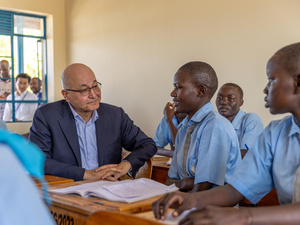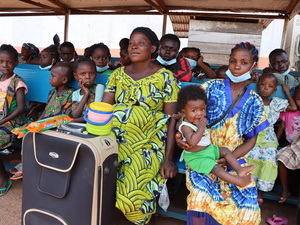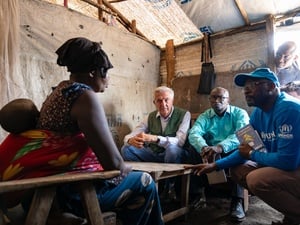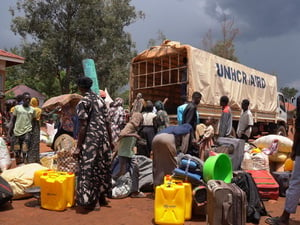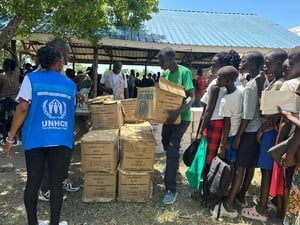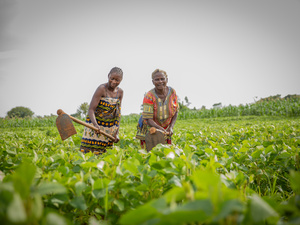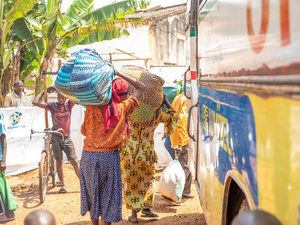Raising chickens proves best therapy for Congolese widows in Rwanda
Raising chickens proves best therapy for Congolese widows in Rwanda

Widows work in a poultry project in Gihembe Refugee Camp that provides food and income to women who have survived violence and torture. It is also a form of group therapy and communal support.
GIHEMBE, Rwanda, April 10 (UNHCR) - Jacqueline swiftly navigates through dozens of fussing hens before swooping down and deftly grabbing one flapping fowl. Although the henhouse is dimly lit, the small chaotic room has become a therapeutic haven for the Congolese refugee, the only one of her family to survive one of Rwanda's most horrific massacres since the 1994 genocide.
The poultry farm was opened three years ago in this camp in the hills of northern Rwanda to provide income to refugee survivors of violence and torture. Not surprisingly, many of the original 250 project members had lived through the infamous 1997 Mudende massacre, when armed groups attacked a UNHCR camp with that name twice within five months, killing hundreds.
Mudende was considered to be too close to the border with the Democratic Republic of the Congo, and residents were transferred to a new camp at Gihembe.
"I lost my husband and children in Mudende," says Jacqueline, one of the rare times she speaks.
Her friend Pelagie, who also come from Mudende, says the poultry farm quickly took on greater significance than providing food and extra cash for the widows. It turned into something akin to group therapy.
"Before we didn't know each other," says Pelagie. "We didn't speak of our suffering. But now when one of our members is sick or has a problem, we are there for them." The original 250 members has shrunk to 110 as many women were resettled to the United States because of their special needs as survivors of violence or torture.
The women sell their eggs and chickens to fellow refugees and on the local market, with profits invested back into the business. The women also get cash dividends once every three months, as well as eggs for their families.
Pelagie, her husband and five children escaped the Mudende massacre. However, after her husband died nine years ago, she said she frequently had to sell part of her food rations to buy other essentials like clothes and soap. Sometimes she worried what she would feed her children.
But now, with the income from the poultry business, the family eats all month long, and they don't have to sell any rations. Best of all, her oldest daughter, who once had to drop out of Grade 11 when Pelagie could not afford the school fees, has rejoined her class.
The other women at the poultry farm contribute to keep her daughter in school.
"We all take care of each other," Pelagie says with a smile.
By Erika Fitzpatrick in Gihembe Refugee Camp, Rwanda

